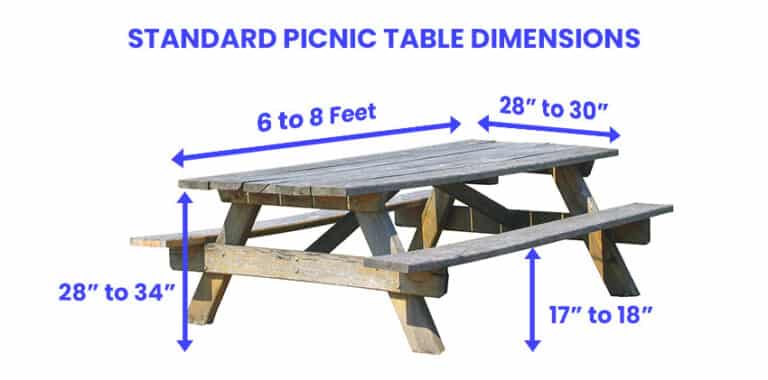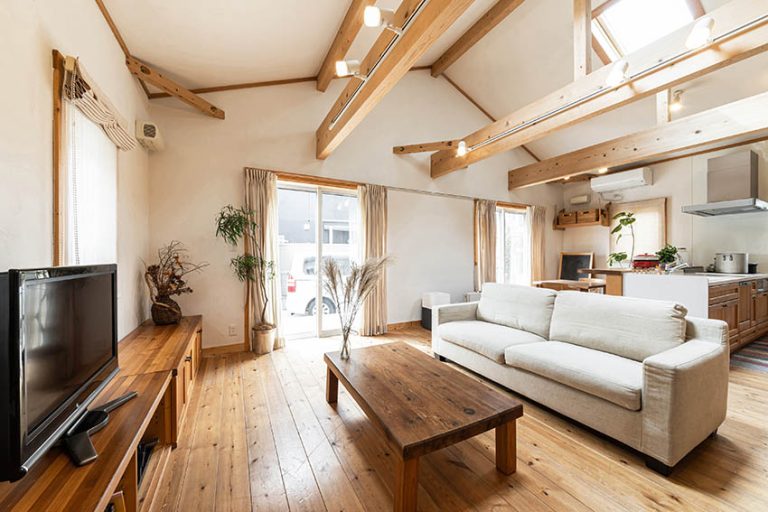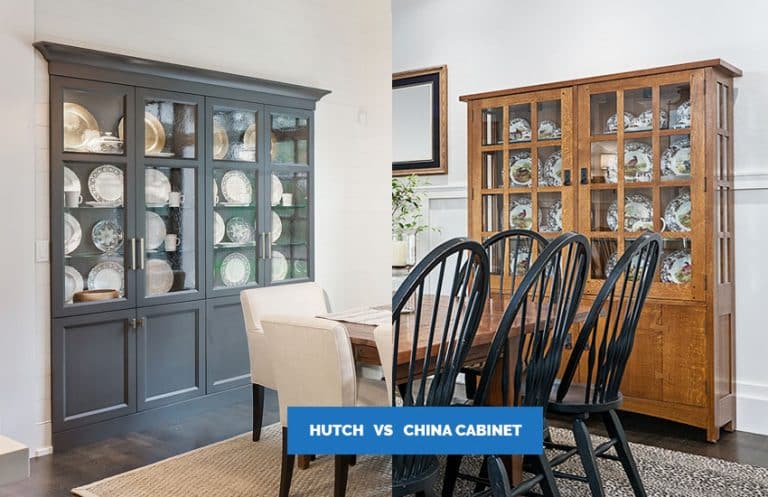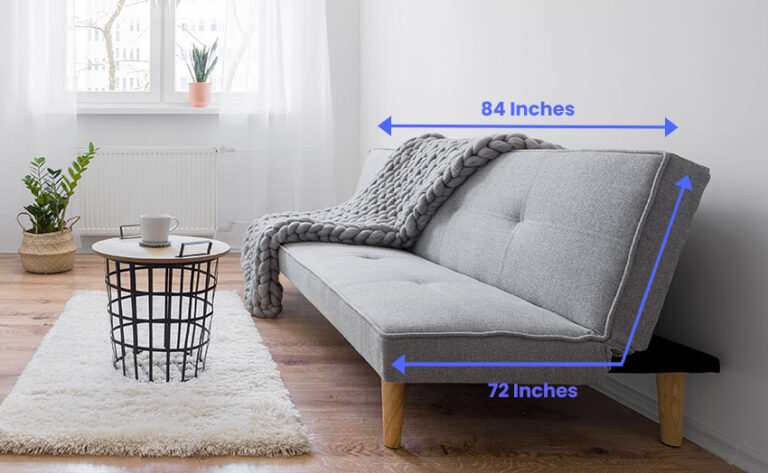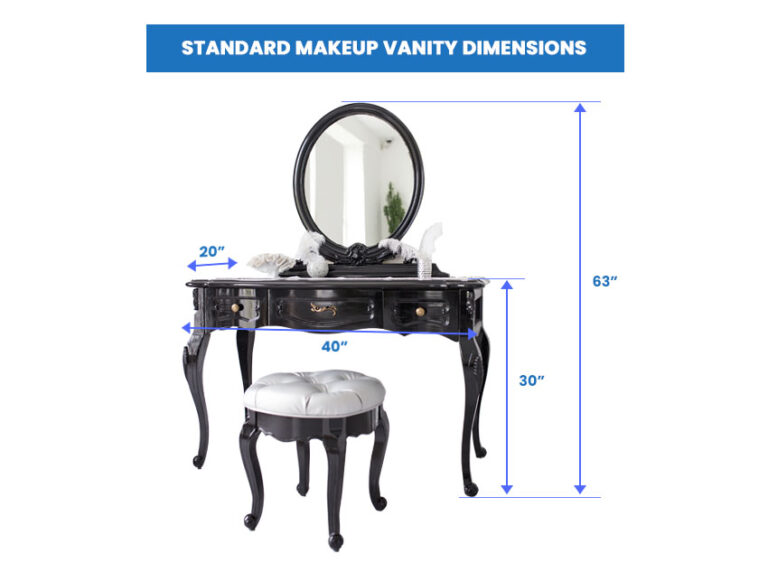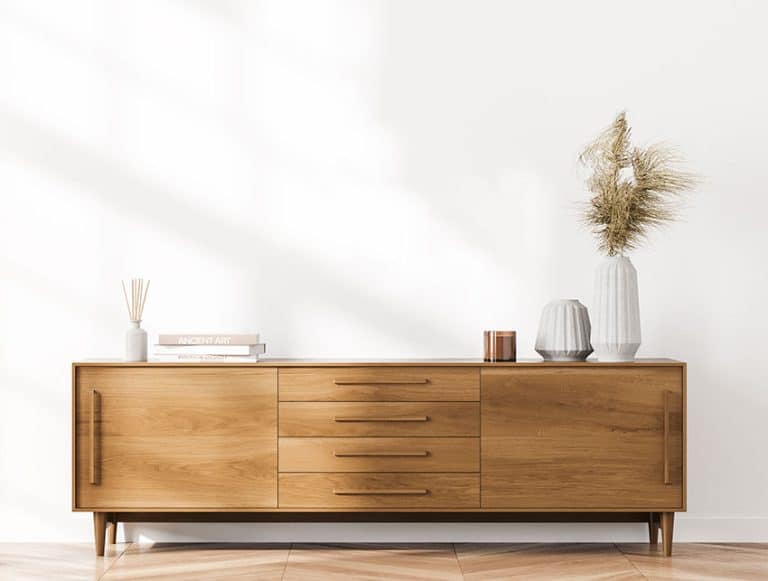Futon vs Sleeper Sofa (Comparison Guide)
Are you struggling to maximize space in your small home or apartment? Whether you’re flipping a room from an office to a bedroom or hosting sleepovers, finding stylish and practical furniture is key. Futons and sleeper sofas are lifesavers, blending design, durability, and comfort for those tight on space.
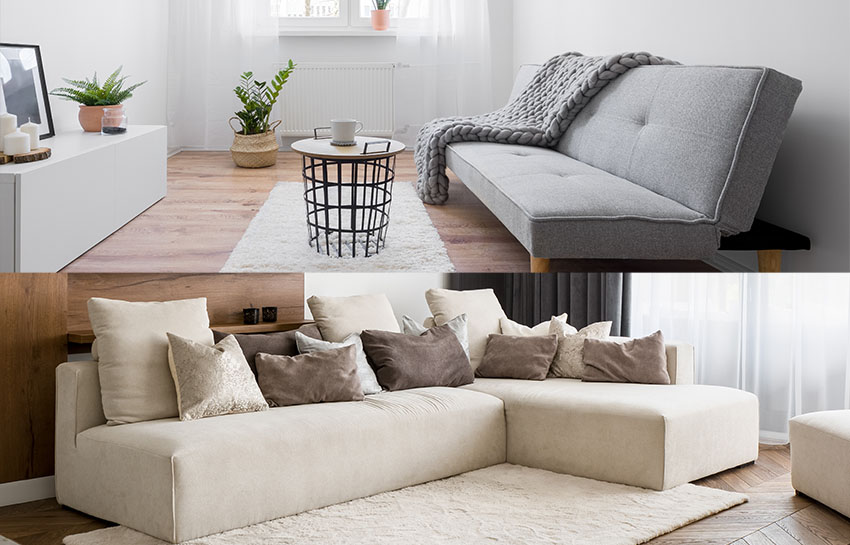
In this article, we give you a side-by-side comparison between these two and help you choose what works best for you.
Differences Between Futon and Sleeper Sofa
Japan is famous for its innovations in technology and architecture. But they are also known for popularizing futons, an earlier form of a mattress. The Japanese and other neighboring Asians favor futons for two reasons: portable features and their health benefits.
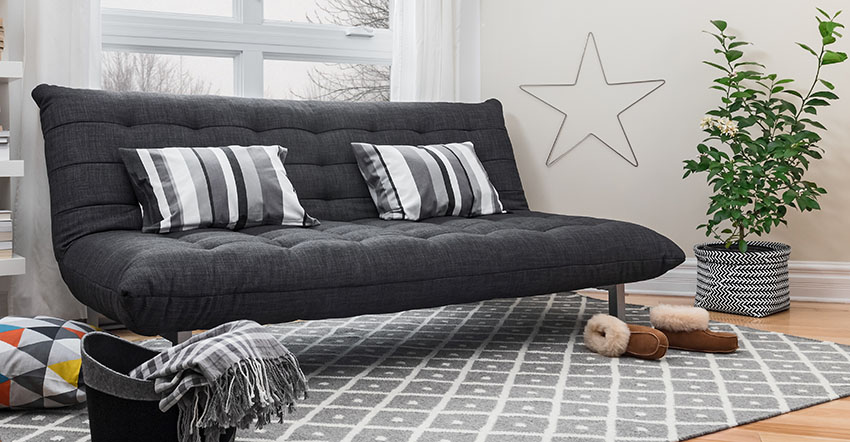
Because traditional futons are not as thick as full-sized mattresses and lay flat on tatami floors, they help align your spine while sleeping. In effect, futons prevent you from waking up with the dreaded back pain. During the day, you can simply fold and tuck them in the corner, making them great space saving beds.
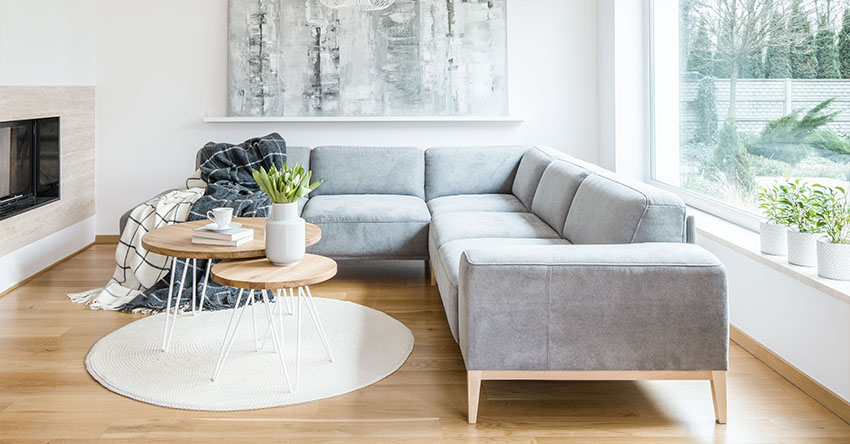
Sleeper sofa is a more modern innovation compared to futons. But they have been around for almost a century. First designed by a Sicilian furniture maker who migrated to the US, the sleeper sofa serves two purposes: sleeping and sitting. Over time, both types have transformed because of technological advancements.
Futon vs Sleeper Design
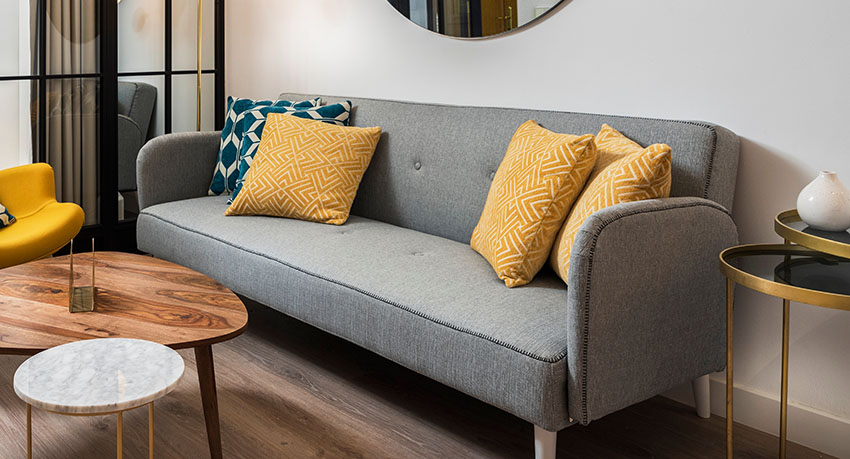
There are more options than one when you go hunting for futons. It has evolved from being a foldable thin mattress on the floor to a convertible bed. Check out the different types below:
Futon Mattress
Futon mattresses nowadays are optimized to give more comfort and ergonomic benefits. They come in various foam types and thicknesses, similar to a bed mattress.
The most sought-after is the memory foam mattress that leaves you feeling snug and comfy. You can read our comprehensive guide to different types of mattresses here.
Bi-fold Futon with Frames
This is like a sofa but with a mattress attached to the frame. Some come without arms and are simply pushed flat to convert into a bed, but bi-fold futons with arms allow you additional space for your head and feet.
Futon frames are either wood or metal. Metal frames are more versatile and can be molded into unique designs, while wood frames can add warmth to your space. Another upside is the mattress can detach from the frame, which makes it easier when replacing.
Tri-fold Futon with Frame
This type is more akin to a folding bed. Tri-fold futons have thinner mattresses and frames, ideal only for quick naps or as a daybed.
But how different are futons from sleeper sofas design-wise?
For starters, sleeper sofas are closer to a traditional bed. The base foam or mattress is eight to 14 inches thick. They also weigh a lot because of their more solid support than bi-fold futons. That said, they are ideal for long-term use.
Like any living room couch, sleeper sofas come in a variety of designs, too. You can have them upholstered in fabric or leather. Some of the sleepers also have extra storage space for blankets, linens, and pillows.
Futon Compared to Sleeper Dimensions
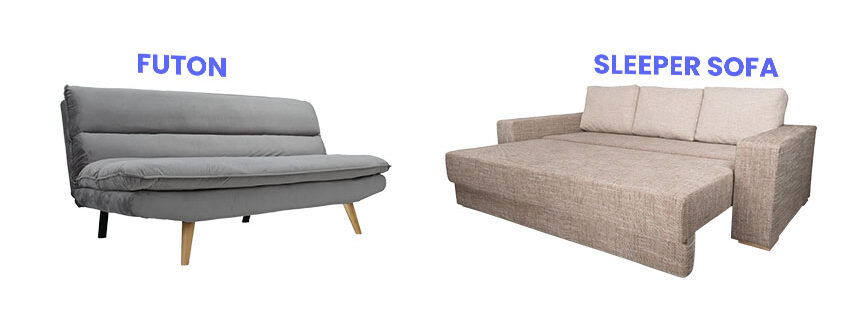
Futons are available in sizes from twin (38 x 75 inches) to king-size mattresses (76 x 80 inches). But the standard size measures 54 inches by 75 inches.
As for sleeper sofa sizes, they are larger than futons. However, their mattresses also come in sizes similar to futons, from twin to king-size mattresses.
Futon Compared to Sleeper Comfort
The comfort of your sleep relies on the thickness, quality, and type of your mattresses and frames.
Futon mattresses typically range between three to 12 inches and have memory, latex, and coil-spring options. However, if you want to choose a frameless option, opt for a three to eight-inch mattress that can fold easily without getting damaged.
By comparison, sleeper sofas are more comfortable than futons and last longer. Futons use the same surface for seating and sleeping, which may wear down faster.
Sleeper sofas have separate foam seats from the mattress, keeping the latter in pristine condition. However, sleepers are more appropriate for larger spaces because of the size and weight of their frames.
Futon and Sleeper Cost
Futons have more affordable choices than a sleeper sofas. You can find futon mattresses that cost around $150 to $270.
Convertible futons start from $350 to $1,000, depending on the frame’s quality and the mattress’s thickness. If you want something more premium, a furniture piece with a wood frame is your best bet.
For those purchasing a sleeper sofa, keep in mind that you are buying a bed-and-sofa set. A decent sleeper starts at $600 to $1000, while a more luxurious sleeper sofa can set you back between $1,500 and $8,500.
In addition to the brand, the price depends on the extra features. Some sleepers come with side tables, storage space, and premium quality upholstery and mattresses.
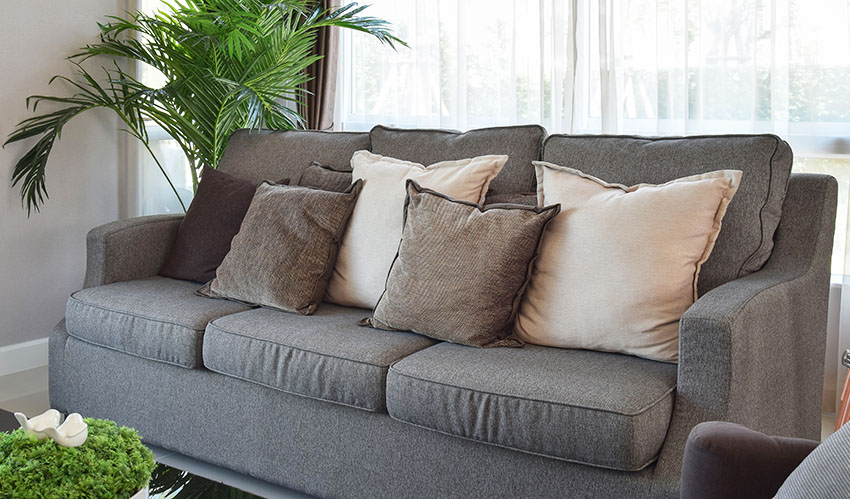
Which Is Better Between a Futon and a Sofa Bed?
Contrary to what many believe, sofa beds and sleeper sofas are not synonymous. In fact, sofa beds are more akin to futons than sleepers.
Think of sofa beds as futons but with fully cushioned frames and more solid support. These make them more comfortable and pricier futons but are smaller than sleeper sofas.
Futons also give more emphasis on functionality than visual appearance, while sofa beds present a wider range of designs.
So, which is better between the two?
Factors like your budget, design preferences, and comfort will affect your decision. While a sleeper is superior, a sofa bed is best for you if you want a happy medium in terms of price and comfort. However, a futon may suffice if you need a spare bed only once in a while and are on a tight budget.
For more content like this, visit our sofa buying guide here.

